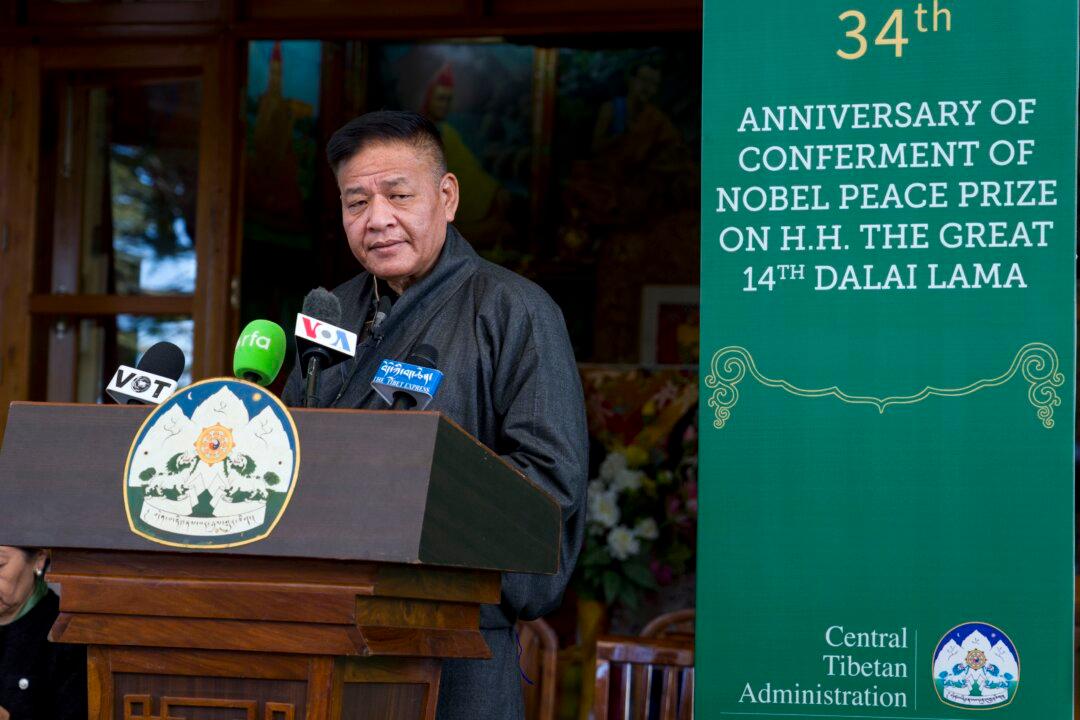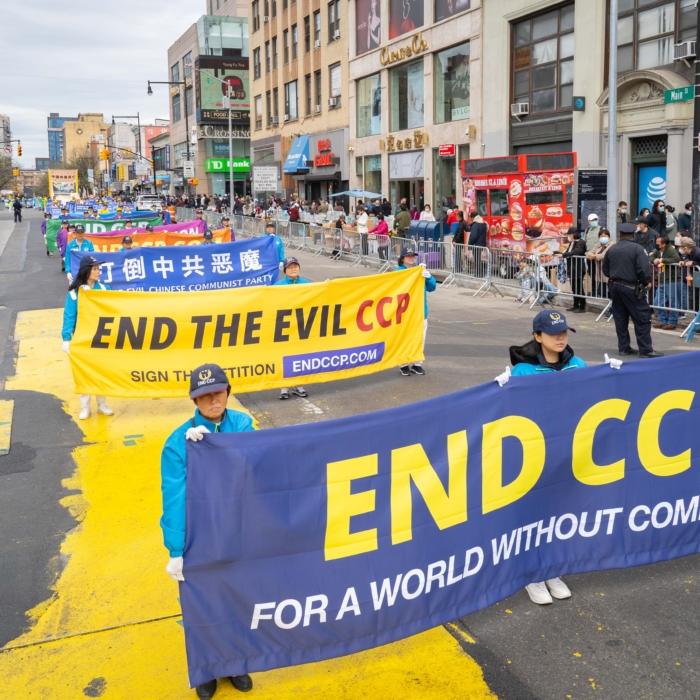DHARAMSHALA, India—The president of the Tibetan government-in-exile on Sunday accused the Chinese communist regime of denying the most fundamental human rights to people in Tibet and vigorously carrying out the extermination of the Tibetan identity.
Penpa Tsering, in a statement marking Human Rights Day, also took exception to the Chinese regime last month releasing a “white paper”—or policy document—on Tibet.
Tsering said the Chinese Communist Party (CCP) was “forging a strong sense of the Chinese national as one single community, promoting the Chinese language, the Sinicization of Tibetan Buddhism and developing socialist values.”
“Such infliction of suffering and oppression on the Tibetan people by the Chinese Communist Party authorities is unparalleled and unprecedented,” he said.
Tsering addressed a group of Tibetans at the Tsuglakhang temple in Dharamshala, the headquarters of the Tibetan government-in-exile in northern India, on the 34th anniversary of the awarding of the Nobel Peace Prize to Tibetan spiritual leader the Dalai Lama. Tibetan schoolchildren and artists performed dances at the cultural event.
Tsering also said there has been a sharp increase in the appointment of Chinese officials in the Tibetan areas.
The Dalai Lama, 88, has made the Indian hillside town of Dharmsala his headquarters since fleeing from Tibet after a failed uprising against Chinese rule in 1959. India considers Tibet to be part of China, though it hosts the Tibetan exiles.
The Dalai Lama denies the CCP’s claim that he is a separatist and says he only advocates substantial autonomy and protection of Tibet’s native Buddhist culture.







